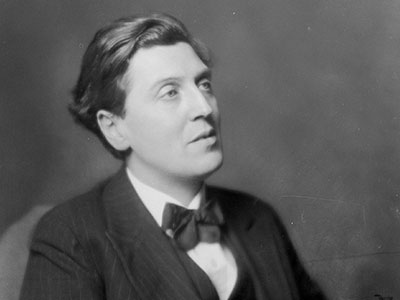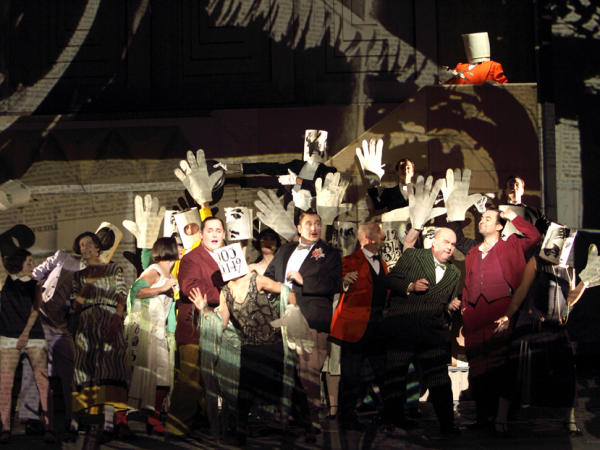
Alban Berg
(born Vienna 9 February 1885; died Vienna 24 December 1935)
With Webern, Berg was the most accomplished of Schoenberg’s pupils and together the trio of composers have become known as the Second Viennese School.
While Berg only composed two operas, they are cornerstones of his relatively slender output and have exerted considerable influence on later generations of composers.
Until 1979 only the first two acts of Lulu were available, the unscored Act III being unauthorised for performance by the composer’s widow. The full mastery of Lulu was not appreciated until after Helene Berg’s death in 1976, when Friedrich Cerha’s orchestral realisation of Berg’s short score was published and the complete three-act Lulu staged.
Among Berg’s celebrated concert works are his Three Pieces for Orchestra (1914–15), the Lyric Suite (1925–6) and the Violin Concerto (1935).
Berg's Musical Style
Berg’s earliest compositions are late-Romantic in style, with harmonic writing much influenced by Wagner.
Under Schoenberg’s tutelage, Berg’s music began to move gradually towards the freer use of tonal relationships that Schoenberg himself was employing, to atonality and eventually to 12-note writing. Berg’s mature musical language successfully combines Romantic and Expressionist elements. Even writing in his latter manner, Berg often maintained loose tonal relationships. He also employed recognisable structural forms in his operas (the librettos of which he wrote himself) – for example, the movements of a suite, or theme and variations – to control his musical material and obtain maximum expressiveness from it.
He was also predisposed to structural symmetries and number patterns in his music, which added encoded – often autobiographical – meaning to his work. At its premiere in 1925, Wozzeck caused much controversy, not least because its central character is an anti-hero; subsequent productions across Europe over the next five years, before the Nazi regime banished it from German opera houses, established its reputation.
Berg's Life
Berg was largely self-taught as a composer until he began studying with Schoenberg in 1904.
He was part of fin de siècle Vienna’s cultural elite, and included among his circle the composers Mahler, Schreker and Zemlinsky, the painter Klimt and the poet Peter Altenberg (whose texts he set).
His marriage in 1911 to the singer Helene Nahowski brought him some financial security, though not always happiness: his Lyric Suite contains numerous ciphers which, when decoded, reveal a passionate love affair.
Berg served in the army during the First World War, the experience of which certainly influenced Wozzeck.
His final years were marred by the rise of Nazism and a consequent lack of performances of his music – though not Jewish, his association with Schoenberg (who was Jewish) got Berg on the list of degenerate composers. He died at the age of 50 of blood poisoning from a carbuncle caused by an insect bite.
Notable Operas
- Wozzeck (1914–23), after Woyzeck by Georg Büchner
- Lulu (1928–35), after Frank Wedekind’s Der Erdgeist and Die Büchse der Pandora; Berg’s short score of Act III was realised by Friedrich Cerha and first performed in 1979

